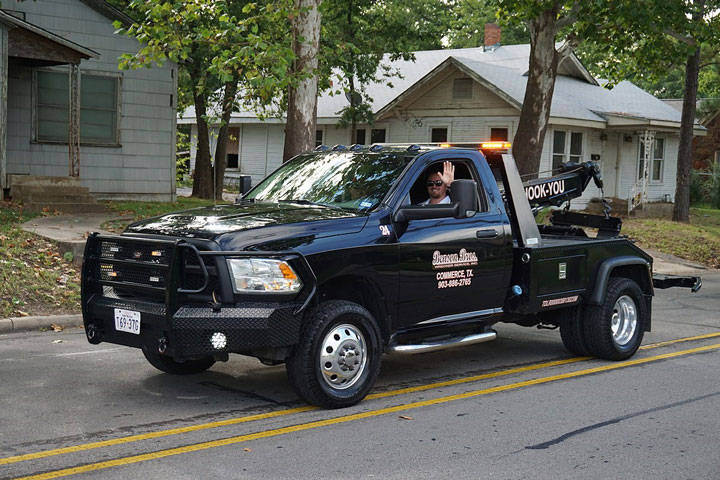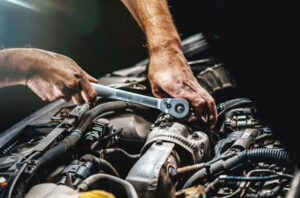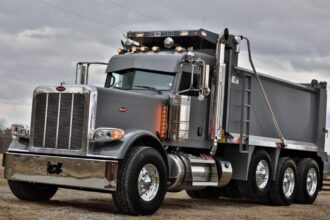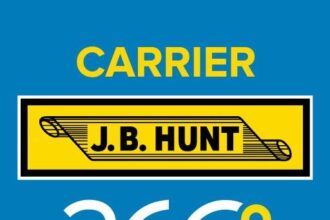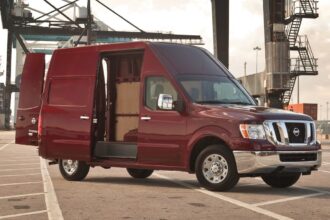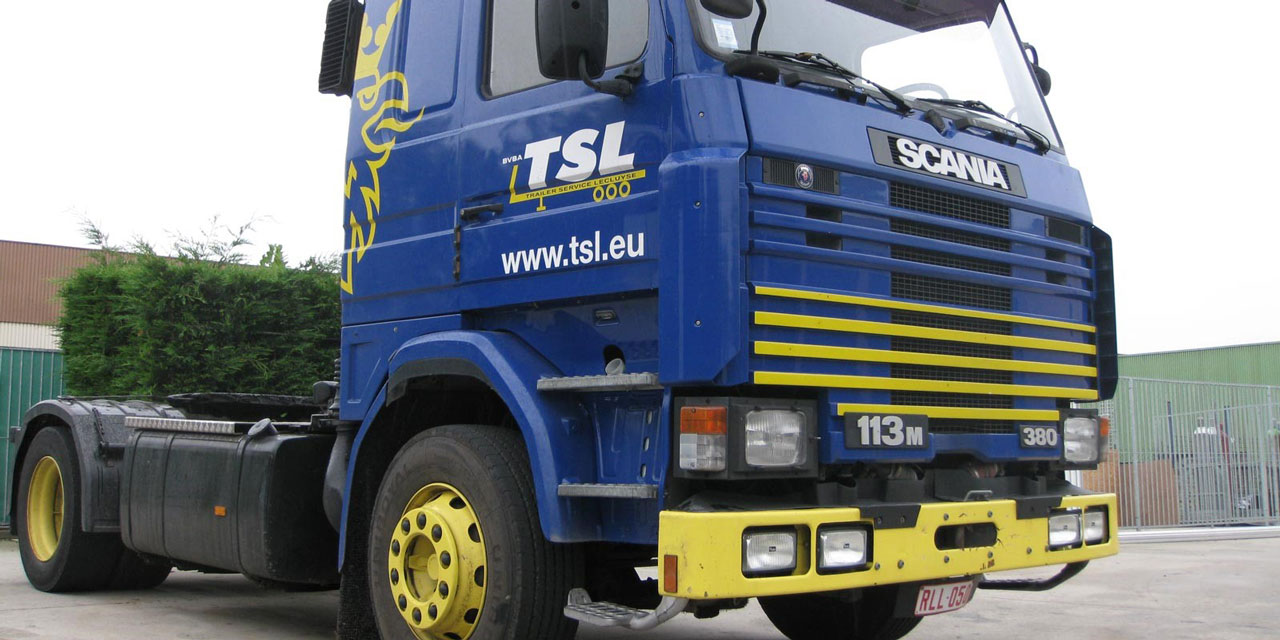Table of Contents
Are you ready to hit the road with a thriving towing business, but the capital for a brand-new tow truck isn’t quite within your reach? Well, look no further. Explore how to lease the perfect tow truck for your business, even if you’re just starting.
A tow truck is the unsung hero of the road, there to rescue stranded vehicles, move heavy loads, and assist in various roadside emergencies. However, owning one can be a significant financial burden. Leasing a tow truck is a smart and cost-effective alternative that allows you to get your business rolling without the hefty upfront costs. Delve into the specifics of how to make this happen, keeping your towing venture on the road to success. Whether you’re starting a new business or expanding an existing one, you’ll be well-equipped with the knowledge and confidence to hit the road with a leased tow truck that propels your business to new heights.
To lease a tow truck for business:
- Evaluate Your Business Needs
- Set a Budget
- Research Leasing Companies
- Choose the Right Lease Type
- Review Lease Terms
- Inspect the Tow Truck
- Understand Insurance
- Requirements
- Negotiate the Lease Agreement
- Finalize the Deal
- Ensure Operational Compliance
- Maintain Records
Recap
1. Evaluate Your Business Needs
To understand the essentials of leasing a tow truck for your business, assess your business requirements thoroughly. Start by considering the types of vehicles you’ll be towing, as this significantly impacts the choice of tow truck. If you often tow smaller cars in an urban area, a lighter-duty and more maneuverable tow truck may be sufficient. However, if your operations involve heavier vehicles or occur in rural areas with frequent heavy-duty towing needs, a larger and more robust tow truck becomes a necessity. Moreover, evaluating the terrain and environments you’ll be operating in is crucial. In rough terrain, you might need a four-wheel-drive tow truck, while for urban settings, a two-wheel-drive truck could be more practical. By meticulously assessing your business’s unique demands, you can pinpoint the precise specifications and features required in the tow truck you plan to lease, ensuring that it seamlessly serves your towing needs while optimizing your investment.
2. Set a Budget
To ensure a smooth process when leasing a tow truck, determine how much you’re willing to spend on leasing a tow truck. Consider not only the upfront costs but also the ongoing expenses like insurance and maintenance. For instance, if you’ve decided you can allocate $1,500 per month for leasing, this will guide your choices. Careful budgeting can help you avoid overspending and ensure that the lease fits comfortably within your financial capabilities. Remember that setting a clear budget is the foundation for making informed decisions throughout the leasing process and keeping your business financially stable.
>>>MORE: Do I Need Authority for a Tow Truck?
3. Research Leasing Companies
To initiate your tow truck leasing endeavor, start by researching leasing companies. Begin by looking for reputable leasing companies in your local area. One effective approach is to read online reviews, which can provide valuable insights into the experiences of other business owners who have leased tow trucks. Additionally, seek recommendations from fellow business owners who may have previously engaged with reliable leasing providers. For example, in New York City, companies such as ABC Towing Trucks are well-regarded for their services, making them excellent options to consider for your tow truck leasing needs. Conducting this research will help you make an informed decision and ensure that you choose a trustworthy leasing partner that meets your business requirements.
4. Choose the Right Lease Type
To make an informed decision when leasing a tow truck, it’s crucial to understand the various leasing options available. Two common types are a finance lease and an operating lease, each with its own distinct characteristics and potential impacts on your business’s financials and tax situation. In a finance lease, you are likely to assume ownership of the tow truck at the end of the lease term. This option can offer long-term benefits as the truck becomes an asset for your business. However, it may involve higher monthly payments. In contrast, an operating lease resembles a long-term rental, providing more flexibility and potentially lower monthly costs. Choosing the right lease type should align with your business’s goals and financial capabilities, so weigh the pros and cons of each option carefully. It’s advisable to consult with financial experts or advisors to ensure your decision aligns with your long-term business objectives.
5. Review Lease Terms
To navigate the world of tow truck leasing, carefully go through the lease agreement. Pay attention to the lease duration, monthly payments, mileage limitations, and any penalties for early termination. Ensure all terms align with your budget and business needs. It’s essential to comprehend the fine print, understanding precisely what you’re committing to over the agreed lease period. Scrutinize any hidden fees or clauses that might impact your financial planning. Clarify with the lessor any terms that seem ambiguous or unclear; a transparent understanding of the contract is key to a successful and cost-effective leasing experience.
6. Inspect the Tow Truck
To avoid common pitfalls when leasing a tow truck, it’s imperative that you always inspect the vehicle before finalizing the lease agreement. This inspection involves a detailed examination of the tow truck to check for any existing damages or mechanical issues. Additionally, ensure that the tow truck meets the specific requirements you established earlier in your process. If during the inspection you find any issues or discrepancies, it’s essential to initiate negotiations with the leasing company. Work toward having these issues resolved to your satisfaction before committing to and signing the lease agreement. A thorough inspection not only safeguards your interests but also ensures you’re getting a tow truck that’s in optimal condition for your business needs.
7. Understand Insurance Requirements
To find the ideal tow truck for your business, it’s crucial to comprehend the distinct insurance needs associated with the specific tow truck you’re leasing. Different tow trucks may require varying insurance coverage based on their capabilities and your business model. For instance, a wrecker used for roadside assistance might necessitate liability coverage, while a heavy-duty tow truck specializing in industrial machinery transportation could require cargo insurance due to the high-value items it often transports. Furthermore, in some cases, garage keepers’ insurance may be necessary if your business involves storing customers’ vehicles. Understanding these insurance requirements not only ensures compliance with legal regulations but also safeguards your business from unexpected liabilities and financial risks.
8. Negotiate the Lease Agreement
To prepare for the financial aspects of tow truck leasing, don’t hesitate to negotiate with the leasing company. You might be able to secure more favorable terms or pricing. For instance, you can discuss reducing the monthly lease payment or extending the warranty period. Negotiating can also involve clarifying the responsibilities for maintenance and repair costs. Remember, it’s in your best interest to create an agreement that not only aligns with your budget but also ensures you get the most value from your tow truck lease. Be clear about your expectations and seek a lease that caters to the specific needs and challenges of your towing business. This can lead to a more cost-effective and productive lease arrangement.
9. Finalize the Deal
To ensure your business benefits from tow truck leasing, Once you’re satisfied with the lease terms and the condition of the tow truck, finalize the deal. Sign the lease agreement, make the initial payment, and take possession of the tow truck. This step marks the culmination of the negotiation process, where both parties reach a mutually agreeable arrangement. It’s pivotal to carefully review all terms and understand your responsibilities and privileges within the leasing agreement. By firmly solidifying the deal, you propel your business closer to utilizing this vital asset, commencing operations, and driving your business forward.
10. Ensure Operational Compliance
To guarantee your leased tow truck meets compliance standards, take diligent steps to confirm that your tow truck adheres to all local and state regulations. This process may encompass a series of crucial tasks, including safety inspections, emissions testing, and securing essential permits. Safety inspections are vital to ensure your vehicle is in proper working condition and won’t pose risks to drivers or the vehicles being towed. Emissions testing is often required to reduce environmental impacts, and it’s imperative to comply with such standards. Moreover, obtaining the necessary permits is an essential part of operational compliance, as it legalizes your towing operations and prevents potential legal complications. By diligently addressing these compliance requirements, you’re not only safeguarding your business but also ensuring the safety and satisfaction of your clients.
11. Maintain Records
To maintain your leased tow truck for optimal performance, it’s crucial to keep detailed records of all transactions associated with the tow truck lease. These records should encompass a comprehensive range of financial and operational aspects. Specifically, you should diligently track lease payments, maintenance and repair receipts, and insurance documents. These records serve multiple vital purposes. Firstly, they are indispensable for effective financial management, allowing you to monitor expenses, budget effectively, and assess the overall cost of the lease. Secondly, meticulous record-keeping helps ensure regulatory compliance, as it enables you to provide documentation if required by authorities. Finally, these records serve as a valuable reference, aiding in any potential warranty claims, lease extensions, or negotiations with the leasing company. In essence, robust record-keeping is the cornerstone of successful and cost-effective tow truck lease management, underpinning both your financial stability and your legal obligations.
Recap
In summary, to lease a tow truck for your business, ensure you’re well-equipped to make the best choices. Begin by evaluating your business’s unique needs and defining your budget. Then, explore reputable leasing companies, meticulously review lease terms, inspect the tow truck, and negotiate the agreement to secure favorable terms. Understanding insurance requirements and ensuring operational compliance are vital for the safe and legal operation of your tow truck. Maintaining detailed records keeps you organized and compliant with regulations, helping your business thrive.
This roadmap not only simplifies the complex process of leasing a tow truck but also empowers you to make informed decisions that align with your business objectives. By following these steps, you’re ready to hit the road confidently, knowing you’ve acquired a crucial asset for your towing business that’s tailored to your specific needs. Leasing a tow truck can be a pivotal move that sets your business up for success, and this guide ensures you navigate this process effectively and efficiently.


